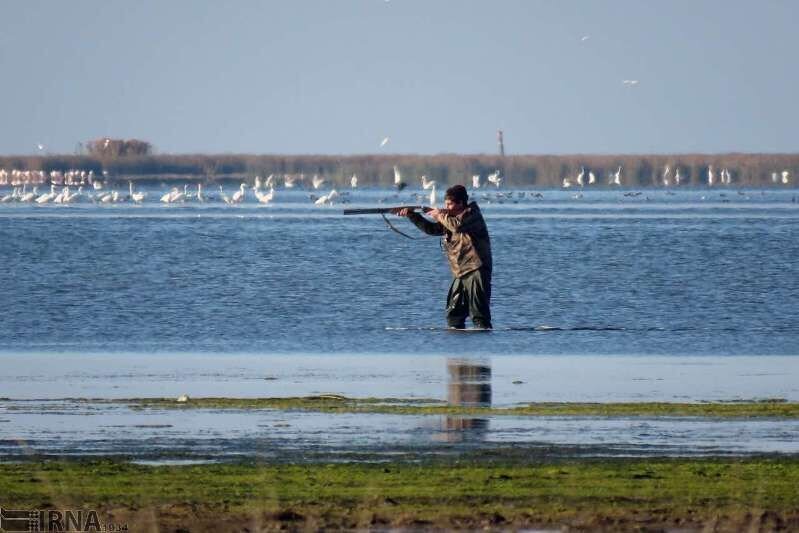Penalties increased to curb wildlife crimes

TEHRAN – The Department of Environment (DOE) has increased penalties for wildlife crimes to deter offenses and strengthen conservation measures.
Penalties for hunting and capturing wild animals and destroying vegetation have increased from 20.4 million rials (about 34 dollars) to 102 million rials (about 170 dollars).
The penalties for hunting and fishing during prohibited seasons and hours, hunting and fishing using unauthorized equipment and methods, and destroying sources of water like fountains for animals in protected areas, have increased from 153 million rials (255 dollars) to 306 million Rials (510 dollars).
The fines for hunting and fishing protected wild animals, particularly in protected areas and wildlife sanctuaries without a permit; polluting the water of rivers; lakes, and protected wetlands; hunting rare and endangered wild animals; hunting in national parks; and hunting or killing wild animals using poisons and explosives; taking actions that pollute the Caspian Sea, the Persian Gulf, and the Sea of Oman with non-oil substances, has raised from 204 million rials (340 dollars) to 340 million rials (about 507 dollars) and 408 million rials (680 dollars) to 578 million rials (around 963 dollars), respectively.
On April 15, Gholam-Reza Ebdali, an official with the Department of Environment said, “According to experts, the current penalties do not provide a significant deterrent effect for wildlife crimes, so it has been decided to triple them.”
Offenses involve the illegal killing of wildlife, fishing, or hunting without permits. The penalties for these offenses vary based on the biological value of each species, the population crisis, and endangered status, whether or not the species is in danger of extinction, ILNA quoted Ebdali as saying.
Endangered species such as the Asiatic cheetah, which is also considered one of the main protected species, will attract the highest penalties, he noted.
The fine rate for offenses against other animal species, such as leopard, yellow deer, Persian zebra, black bear, brown bear, great bustard, falcon, and saker falcon, will increase this year, the official stressed.
The initial proposal was to raise the penalties by 10 times the current rate to tackle the increase in wildlife crimes. However, it was not approved in the preliminary meetings of the Supreme Council for Environment Protection leading to triple penalties for wildlife crimes, which will be finalized in the next meeting of the council.
Ebdali went on to say that road accidents are the other source of threat to animals which cannot be traced to penalize the killers due to lack of cameras on the roads.
To reduce wildlife species’ deaths due to road accidents further actions need to be taken. The least expensive measure to tackle the problem is to secure roads next to animal habitats; increase the number of warning signs, and install enough electric light poles as well as fencing to help species survive.
conservation efforts
More than 8,000, 2,000, and 25,000 species of plants, vertebrates, and invertebrates, respectively, show Iran's rich biodiversity and the importance of its preservation.
Wildlife conservation, which includes protecting all living things on the planet, plant and animal species, and microorganisms, means preserving the components of a large network. A network wherein all the components are interconnected and depend on each other in different ways.
In the last few years, protecting animal species in their original habitat has been considered one of the main tasks of the Department of Environment (DOE).
The DOE has formed four ad hoc committees for the preservation of imperiled animal species.
Several meetings and consultations have been held with some other countries to benefit from their scientific and experimental capacities in the preservation of species such as the Asiatic cheetah, the great bustard, the leopard, and houbara bustard.
Holding several workshops and training courses on getting to know reptiles and amphibians, leopards, aquatic animals, and existing challenges, as well as diagnosing their diseases and ways to prevent them, are among other important measures that have been taken.
MT/MG
